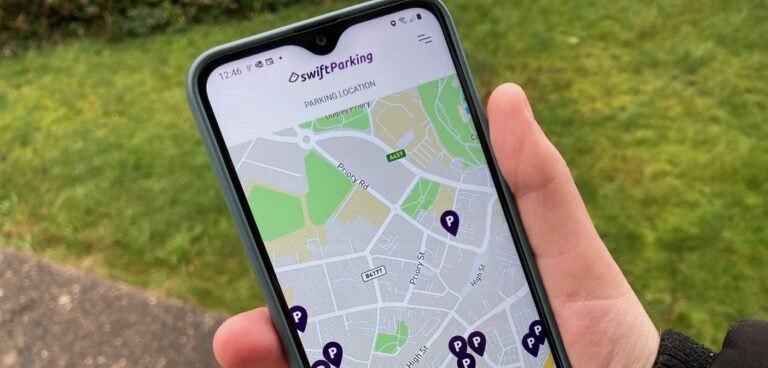Transport for West Midlands (TfWM) has launched a new parking payment app to offer better value and help reduce traffic congestion.
An extension of TfWM’s Swift travel card, which is used to pay for buses, trams and trains, the dedicated Swift parking app can be used at 35 car parks across the region including 29 council-owned facilities in Dudley.
Like other private operators’ parking apps, Swift allows motorists to use their smartphone as an alternative to paying by card or cash. But unlike others there is no surcharge for using the Swift option.
Features include checking opening times and charges before travelling, extending parking time remotely and electronic receipts. To date, more than 2,000 people have signed up to the app and work is ongoing with other local authorities and car park owners to join up.
Cllr Karen Shakespeare, cabinet member for public realm with Dudley Council, said: “We had no hesitation in adopting Swift across our car parks and it has proved popular for users.
“It could also enable us to show motorists better ways to visit Dudley – especially as we are witnessing a transport revolution with the new Metro tram line under construction, a new bus interchange station and more rapid bus services on the way.”
According to West Midlands Combined Authority (WMCA), which oversees TfWM, the Swift parking app could also play a part in encouraging people to switch to more sustainable transport by introducing users to the wider range of Swift public transport products and targeting bespoke offers at motorists.
Cllr Kath Hartley, who chairs the WMCA’s transport delivery committee, said: “As the region’s one-stop travel card Swift is proving a success and was used to make more than 50 million journeys in 2019.
“Now it can even be used to pay for parking at a growing number of places, including Dudley and the new Longbridge multi-storey car park, offering motorists better value and convenience.
“Incentives, such as free or discounted fares, can also be offered to users to give public transport a try which could help us meet the challenges of congestion, pollution and climate change.”





